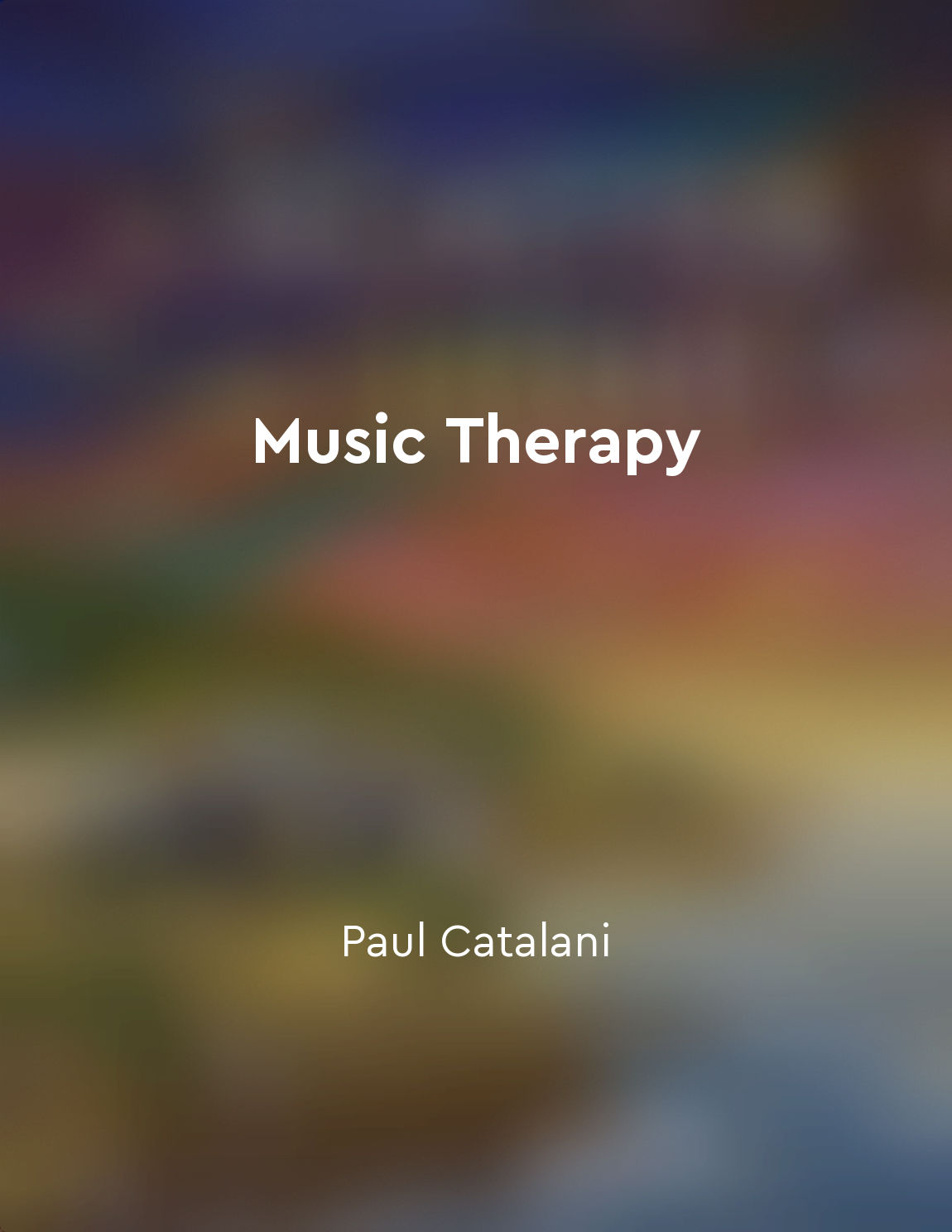Audio available in app
Harnessing the therapeutic potential of music in healing and growth from "summary" of Music Therapy by Paul Catalani
The therapeutic potential of music in healing and growth is a powerful concept that has been utilized for centuries in various cultures around the world. Music has the ability to evoke emotions, memories, and physical responses in individuals, making it a valuable tool for therapists seeking to facilitate healing and personal development. Music therapy, as a practice, involves the use of music to address physical, emotional, cognitive, and social needs of individuals. It can be applied in a variety of settings, including hospitals, schools, rehabilitation centers, and private practices. By harnessing the power of music, therapists can help clients explore and express their thoughts and feelings in ways that may be difficult to articulate through words alone. One of the key benefits of music therapy is its ability to promote relaxation and reduce stress. Listening to calming music can lower heart rate, blood pressure, and cortisol levels, creating a sense of peace and tranquility in the body and mind. This can be particularly helpful for individuals dealing with anxiety, depression, or chronic pain. Music therapy can also improve cognitive functioning and communication skills in individuals with neurological conditions such as Alzheimer's disease, autism, and traumatic brain injury. By engaging in musical activities such as singing, playing instruments, or listening to music, clients can enhance their memory, attention, and language abilities. Furthermore, music therapy can strengthen social connections and foster a sense of community among individuals. Group music-making activities can promote cooperation, teamwork, and empathy, leading to increased feelings of belonging and support. This can be especially beneficial for individuals struggling with isolation or interpersonal difficulties.- The therapeutic potential of music in healing and growth is a versatile and effective approach that can address a wide range of physical, emotional, cognitive, and social needs. By incorporating music into therapeutic interventions, therapists can help clients achieve personal growth, self-awareness, and emotional well-being in a holistic and integrative manner.


